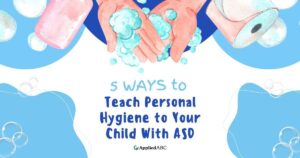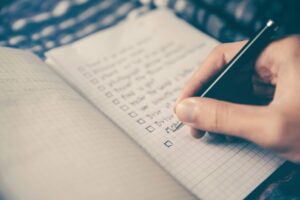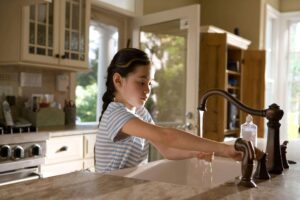
Personal hygiene is a very important thing to learn at a young age. Not only does personal hygiene allow individuals to prevent personal health issues, but it is also important for socializing and maintaining relationships.
Maintaining personal hygiene is part of basic daily activities for most people. It helps create a sense of consistency and routine, which are two vital factors that individuals with autism spectrum disorder focus on. In this blog, we will review five ways to teach your child with autism spectrum disorder how to maintain their personal hygiene effectively.
1. Use Visual Aide
People with autism spectrum disorder are often visual learners and thinkers. They are more likely to thoroughly understand and benefit from seeing ideas and concepts displa
yed to them rather than receiving a verbal or written explanation.
This concept was proven in a 2005 study from the International Journal of Paediatric Dentistry, where children who were shown images displaying techniques for tooth br
ushing and oral hygiene had with less plaque buildup after 18 weeks than they had prior. This concept of visualized education can of course be adapted to other examples of personal hygiene, such as hand washing and bathing. Such visualized learning can make it easier for your child to develop a daily hygiene routine.
Someone writing a checklist in a notebook.
2. Create a Set Routine
Children with autism spectrum disorder heavily rely on set routines. Due to having “restricted interests with repetitive stereotyped patterns of behavior,” individuals with autism thrive on order and uniformity.
By creating a designated order of tasks, a child with ASD will be more likely to maintain personal hygiene daily in an enthusiastic and positive way. This concept can be carried beyond personal hygiene and into other forms of daily activities, such as preparation for school, meal preparation, room organization, and more.
3. Inform Your Child About Bacteria
By showering, washing our hands, and managing other hygiene-related tasks, we can reduce the risks of contracting illnesses and diseases.
This is especially important for children with autism, as “several lines of research have shown abnormalities in the immune response in autism, including a skewed generation of antibodies, cytokines, and immune cells.”
Therefore, teaching your child about how illnesses and diseases spread is essential. Educating your child on this subject will make them more likely to understand the importance of personal hygiene, increase the odds that they adopt better hygiene habits, and create a well-regulated routine.
4. Use Sensory-Friendly Products
Autism spectrum disorder is often characterized by aversions or preferences to different sensory sensitivities. Such factors include but are not limited to:
- Sights
- Sounds
- Smells
- Tastes
- Touch
- Balance (vestibular)
- Awareness of body position and movement (proprioception)
- Awareness of internal body cues and sensations (interoception)
For personal hygiene, it is essential to try different products to find what is best for your child. Such products can include different toothpaste flavors, soaps, shampoos, and toothbrushes. These different products should be introduced gradually, so it won’t interrupt a child’s established routine and so you can accurately monitor how your child responds to the change.
5. Offer Rewards and Positive Reinforcement
For children with autism spectrum disorder, it is very important to cultivate a positive environment where your child feels both valued and rewarded for positive behaviors. This is especially important when teaching good hygiene practices to your child.
One strategy to adopt is to create a reward system. A good example of such a system is a sticker list so that when your child completes a task, they put a sticker next to it. This promotes organization, along with a sense of pride and accomplishment for completing new tasks, such as teeth brushing, toileting, bathing, etc. This strategy also builds upon the previously ingrained set routine or helps to establish a new one. When a task is completed, it is then important to be positive and praise your child for completing tasks.
Sources Cited
Ashwood, P., et al. The Immune Response in Autism: A New Frontier for Autism Research.
Pilebro, C., and Backman B. Teaching Oral Hygiene to Children With Autism.
Rodger S. and Umaibalan V. The Routines and Rituals of Families of Typically Developing Children Compared with Families of Children with Autism Spectrum Disorder: An Exploratory Study.





